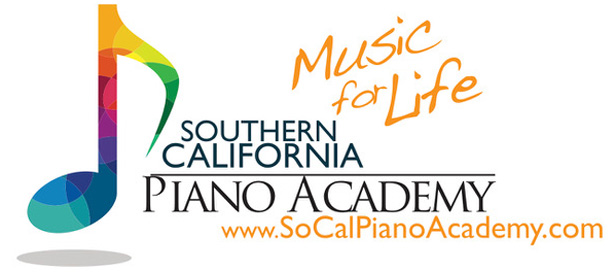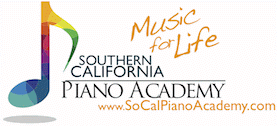
If you decide to take lessons, you will need a piano or digital keyboard to practice on. Below are some options as they relate to both beginning and advanced students. After reading our comprehensive guide don’t hesitate to call us if you have any question.
(805) 770-7942 or
email us: info@socalpianoacademy.com
I Electronic Keyboards:
Small inexpensive keyboards: ($100 at Target or Costco)
These are not full-size (88keys) or weighted actions like an acoustic piano, however, these are fine for beginning children or adults to get started, if you have nothing else available.
Children will outgrow these instruments within 3 months and adults within 8 weeks–Enough time to decide whether you want to invest in or rent an acoustic instrument or even continue your lessons!
Warning: More important than the size or cost, is the seat height for the student’s size. Talk to your teacher to determine the best bench height and keyboard height. A keyboard seated too low or too high for the student will result in a number of technical and physical problems that are very time consuming to overcome and make initial success very difficult.
II Keyboard Rentals:
Full size, weighted keyboards:
These have all of their keys (88) and have an action that mimics the acoustic piano action, called a “weighted” keyboard. Although it never FULLY replicates an actual piano (no matter what the sales pitch tells you) it is a vast improvement over the first type of keyboard and is a great invention for those who live in apartments or condos to study piano!—Due to the possibility of the volume control and headphone option.
There is another advantage of this instrument, which is that they can connect to a computer (make sure the one you get is “midi” compatible.) This is a great educational tool for all students who are eventually interested in arranging, composition or recording. And you will keep the instrument for a very long time in this usage context.
Warning: The limitations of electronic instruments make them impossible to study serious technique, expression and intermediate or advanced pianistic musicianship. At some point within the first 18 months (for adults) and first 2 years (for children) this instrument will need to be replaced by an acoustic piano to actually advance.
Where: Purchases of new or used weighted keyboards are available from individuals and piano stores or music stores as well as online music retailers. Rentals are available at a few piano stores.
Watch for: Make sure they come with a sustain or “damper” pedal that plugs into the keyboard. Without the option to learn pedaling, these are rendered useless very quickly in piano study. You can buy an additional pedal at music stores. The accessory is pretty universal for electronic keyboards.
III Acoustic Pianos:
RENTALS from $50-150/month. Add the upfront cost of 2-way moving, additional stairs to “out the door” costs. Rental cost usually includes one tuning either before the piano leaves the store or at the home. Try to get that done in your home 3-4 weeks after the moving, once the instrument has acclimated.
Where: There are many stores that have rental fleets—just seek out the BEST piano (action and regulated tone) for your budget. A good sales person will help guide you.
PURCHASES: from $500 to $50’000
Purchases: Many stores have great purchase plans. However, the best bang for your buck is usually from a private seller or a consignment broker. We have some recommendations if you need one. Be prepared to hire a technician to check out a piano sold by private sellers, as you won’t know how to evaluate it well.
What to look for:
Buying a piano is like buying a car–Only you can really know what type of instrument you need: Here are some questions to ask yourself before walking into a showroom or looking up craigslist:
“Do I need a….?
A shiny piece of furniture in the living room? A workhorse with a massive music rack for the professional arranger? A decent sound to motivate my advancing kids to practice on? A superior professional-grade instrument for the advancing pianist? A stringy old-timey sound piano that the toddlers can built forts under and get covered in juice boxes?”
FunFactoid: I chose the latter for my 4-year old at the cost of $500. When he can demonstrate that he’s ready and able to learn seriously at an older age, then I’ll meet him half-way and invest in a great instrument for him.
Warning:
No matter what you are looking for, you will be well served investment-wise and performance-wise, if you request to find the “best action” for your budget. A piano with a decent action means it’s been well-built or well cared for, and is likely to hold it’s value longer, in case you plan to upgrade at some point.
Upright vs. Grand:
Some uprights are better condition and more expensive than some grand pianos and vise versa. Get a good piano technician to help you decide what is right for you.
NOTE: Acoustics in your house will make all the difference in sound:
High ceilings, hardwood floors will make a piano vibrate longer (sing), project longer and make the piano sound much brighter. Carpets, small quarters, low ceilings have the opposite affect. Keep that in mind when you’re looking for a piano if you are searching for a particular sound (and you not requiring a professional grade, concert instrument.)
IV What you want to Avoid:
The worst instrument you can get, is the one you stay on for too long!
Unless one is fortunate enough to start on a concert instrument, all pianists out grow their instrument if they continue to study and advance. This is a good thing. Don’t stay on a piano or electronic keyboard longer than you should. It will affect your progress and create horrible habits, terrible technical problems and cost months or years of practice to correct.
Remember: Don’t allow yourself (or someone you love) to stay on a jangly, out of tune, spongy action piano or mini keyboard beyond the first 3 months of study for a thousand reasons. The hand fails to develop and it makes playing impossible. I have sadly watched students waste years of productive practice from having to correct horrible hand technique. It’s heart breaking, unnecessary and easy to avoid.
V Maintenance:
Nothing ages or depreciates a piano’s value faster than neglect!
Regulation: Talk to your tuner/technician about the condition of the action, tone, regulation or any other concern you have. Get your piano on a maintenance plan in recommendation with your tuner– Especially if it is a grand or a valuable piano.
Keep your piano out of the direct sun if you want it to live a long and healthy life.
Tuning: Tune your piano every 6 months, after the weather changes. Barometric pressure (moisture and dry heat) affect tuning and aging more than temperature.
Please don’t hesitate to call us or email if you need more information

